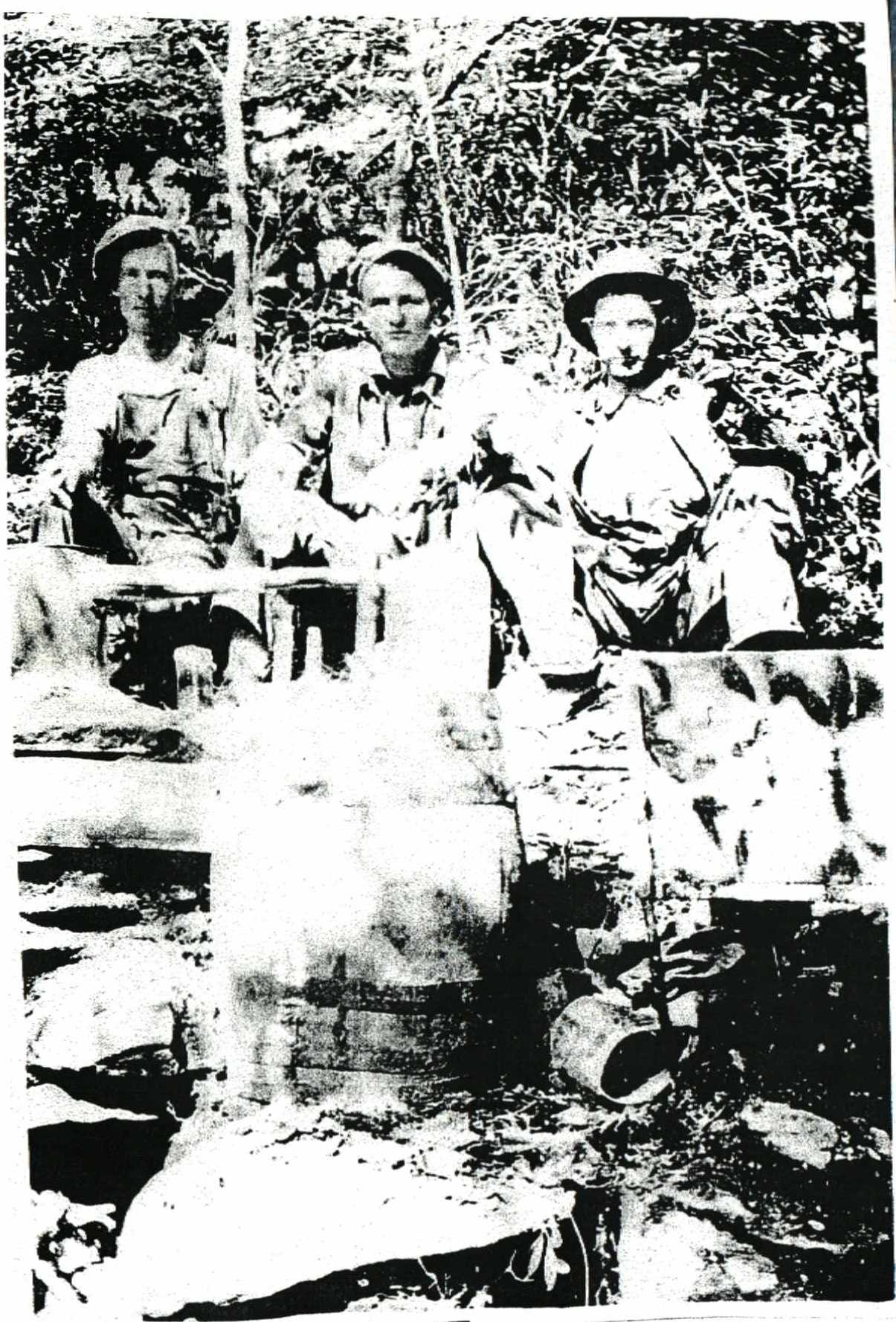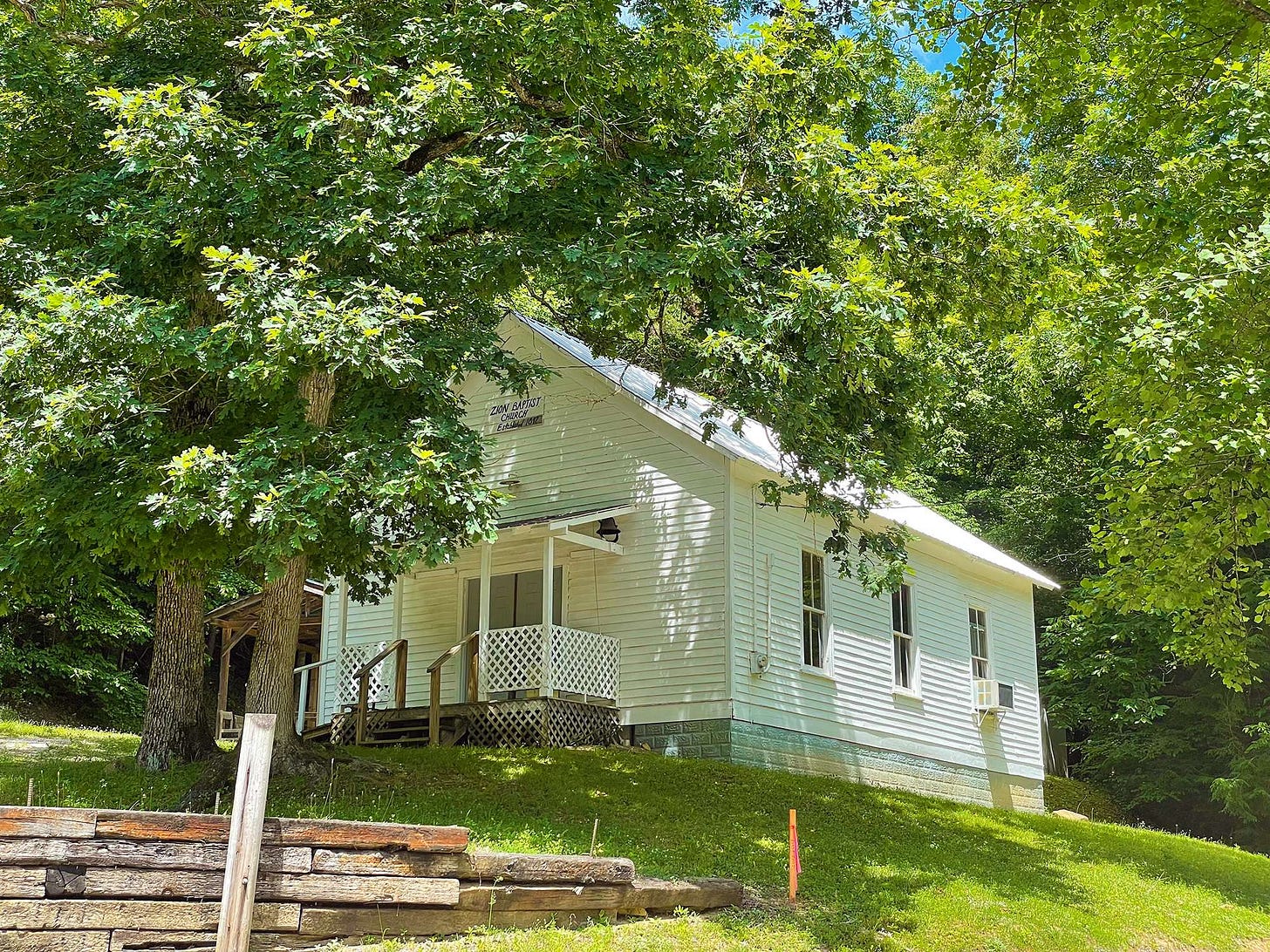After The Moonshiners
A West Virginia Revenue Agent, Tennessee Moonshiners, and a shootout at a Baptist Church

Editors Note: The following article comes from the 1881 book After The Moonshiners: A Book of Thrilling, Yet Truthful Narratives by George Wesley Atkinson (1845-1925). After serving in the Union Army during the Civil War, Atkinson worked as a newspaperman and revenue agent for the U.S. Department of the Treasury in West Virginia from 1879 to 1881. He assisted in some raids on moonshine stills on the Cumberland Plateau in the spring of 1878 and detailed these in the abovementioned book, one of the first to discuss illegal distilling in Appalachia. Atkinson later became a federal judge and served as Governor of West Virginia from 1897 to 1901.
"Our operations were next directed to the Jellico country in Scott county. May 19, 1878, I stopped at the house of J. K. Cordell, on Buffalo creek, and assumed the role of a fisherman, while Mr. Cordell, who was a former resident of Jellico, went back to his old home for the purpose of locating moonshine distilleries and employ men to engage in the same business, it being our intention to break it up root and branches. Mr. Cordell, while a resident of Jellico. was suspected of being in sympathy with revenue officers, and the moonshiners of that locality burned his house and barns, killed all his live stock, and gave him but six hours in which to leave the country.

" Before I left Mr. Cordell's house, we perfected arrangements for a meeting at midnight in the gap of the mountain near widow Archer's, on the Big creek road. I returned to Knoxville and began the organization of a raid, which, in order to prove successful, required absolute secrecy in every detail. The infected locality was in the Cumberland mountains, immediately along the dividing line between Tennessee and Kentucky. It was, therefore, desirable to secure a cooperative movement by the Kentucky revenue officials. Deputy Collector William McDaniel, of Barboursville, Kentucky, was communicated with on the subject of a raid, and promptly responded with an adequate force to carry out his undertakings.
"June 12th, I left Knoxville with four men and at Jacksboro procured five more. At ten o'clock, the night of the loth, ray squad of ten men was joined by Deputy Collector McDaniel and thirteen others from the Kentucky side, at the designated place of meeting on the Big creek road. At eleven o'clock our united forces started towards Jellico creek. At two o'clock next morning, we divided our men, one party under Deputy Collector McDaniel moved up Jellico creek, while the other under my command proceeded up Capachine creek, which was a tributary of Jellico, and of almost equal size. We reached our first distillery at two and a-half o'clock that morning, and kept up our work till eight o'clock, destroying in that time, six moonshine establishments. Arriving at Hiram Trammel's our force was again divided, each squad going in different directions. One of these posses was instructed to proceed up Jellico as far as a log school house, some two miles distant, taking four prisoners with them, and there await the coming of Deputy McDaniel's force. Being tired and exhausted these men stopped at Zion Church, about a mile distant from the school house, and sought the shade for rest until my squad would come along. Within ten minutes from the time they hitched their horses at the church, they were fired upon by ten moonshiners, who were evidently following them for the purpose of rescuing the prisoners. Two of the prisoners escaped in the excitement which followed the attack, but the remaining two were forced into the church. As soon as the officers got inside the church they promptly and vigorously returned the fire of the enemy. Now the battle began in earnest. The moonshiners not only kept up a continuous attack, but attempted to surround the church. After the firing had lasted perhaps half an hour, my squad of six men, who had been apprised of what was going on, promptly rallied to the scene, and the moonshiners were driven from the field.

" Fortunately no officer or aid was hurt, but two of the moonshiners were wounded, though we afterwards learned not seriously. One of our horses which had become exhausted, and left in the neighborhood, was hunted up and killed by the exasperated moonshiners. We at once left Jellico, having destroyed fifteen distilleries and arrested seven men.”

Do you like The History You Don’t Know Newsletter? Please share with a friend who you feel would get something out of it. Word of mouth is still the best form of communication in our digital age.
Want to read more hidden stories of history? Visit our archive to peruse over 70 articles about various topics and subjects.




